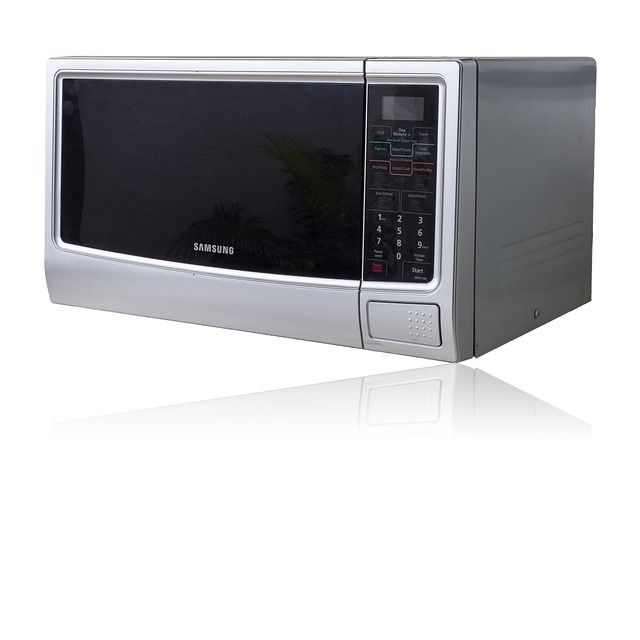Microwave ovens have become a staple in modern kitchens, offering convenience and efficiency for quick meal preparation.
However, amidst the excitement of heating up leftovers or popping some popcorn, we often overlook an important aspect: the grounding of our appliances.
Microwave ovens require grounding to ensure safety during operation. Grounding provides a direct path for electrical currents in case of a fault or malfunction.
In this article, we will explore the significance of grounding in electrical appliances, specifically focusing on the need for grounding in microwave ovens.
Understanding Grounding
Grounding, in the context of electrical systems, refers to the process of connecting an electrical device to the ground or earth.
It serves as a safety measure that helps protect against electrical shocks and ensures proper functioning of appliances.
By providing a safe path for electrical currents, grounding reduces the risk of electrical fires and equipment damage.
Microwave Oven Basics
Before delving into the grounding requirements, let’s briefly understand the basics of microwave ovens. These appliances use electromagnetic radiation to heat food quickly and efficiently.
Inside a microwave, a high-voltage power supply generates microwaves, which are then directed into the cooking chamber by a magnetron.
Other components, such as transformers, capacitors, and control circuits, work together to control the cooking process.
Grounding in Microwave Ovens
Now, let’s address the key question: Does your microwave need grounding? The answer is a resounding yes. Grounding is crucial for the safe operation of microwave ovens.
These appliances typically draw substantial electrical power, and if not properly grounded, they can pose a significant risk of electrical shock or fire.
To ensure proper grounding, microwave ovens must be equipped with a three-pronged power cord. The third prong, known as the ground prong, connects the appliance to the ground, thereby creating a pathway for electrical currents in case of a fault.
It is essential to never remove or modify the grounding prong, as it compromises the safety of the appliance.
Read also my article: Is Your Microwave at Risk? Understanding Overvoltage Damage
Testing for Grounding
If you are uncertain about the grounding of your microwave oven, there are ways to test it. You can use a multimeter or a ground-fault circuit interrupter (GFCI) tester to verify if the ground connection is intact.
These tools can help you identify potential grounding issues and ensure the safety of your appliance.
Signs of an ungrounded microwave may include electrical shocks upon contact, unusual vibrations or humming sounds, or a persistent burning smell during operation. If you notice any of these signs, it is crucial to address the grounding issue promptly.
Importance of Grounding in Microwaves
Grounding plays a vital role in maintaining a safe environment in your kitchen. By providing a direct path to the ground, proper grounding protects you from potential electrical shocks.
It also helps prevent electrical fires by ensuring that any electrical faults are immediately redirected away from the appliance and into the ground.
Troubleshooting Grounding Issues
In some cases, you may encounter grounding problems with your microwave oven. Common issues include loose or damaged power cords, faulty electrical outlets, or improper installation.
If you suspect a grounding problem, it is recommended to consult a qualified electrician to diagnose and resolve the issue.
Attempting to fix electrical problems without proper knowledge and expertise can be dangerous.
Compliance with Electrical Codes and Standards
Microwave ovens, like all electrical appliances, must adhere to specific electrical codes and standards.
These codes are in place to ensure the safety of consumers and establish guidelines for proper grounding.
It is essential to comply with these regulations to avoid potential hazards and legal consequences.
Additional Safety Tips
Apart from proper grounding, here are some additional safety tips to consider when using a microwave oven:
- Follow the manufacturer’s instructions and guidelines for safe operation.
- Avoid using damaged power cords or outlets.
- Keep the microwave clean and free from debris or food particles.
- Do not operate the microwave if it has a damaged door or latch.
- Never attempt to repair or modify the internal components of a microwave oven yourself. Leave it to qualified professionals.
Conclusion
Grounding is a critical aspect of electrical safety, and your microwave oven is no exception. Ensuring that your microwave is properly grounded reduces the risk of electrical shocks and fires, safeguarding you and your home.
If you have any doubts about the grounding of your microwave, it is best to consult a professional electrician.
By prioritizing electrical safety, you can enjoy the convenience of your microwave oven with peace of mind.

